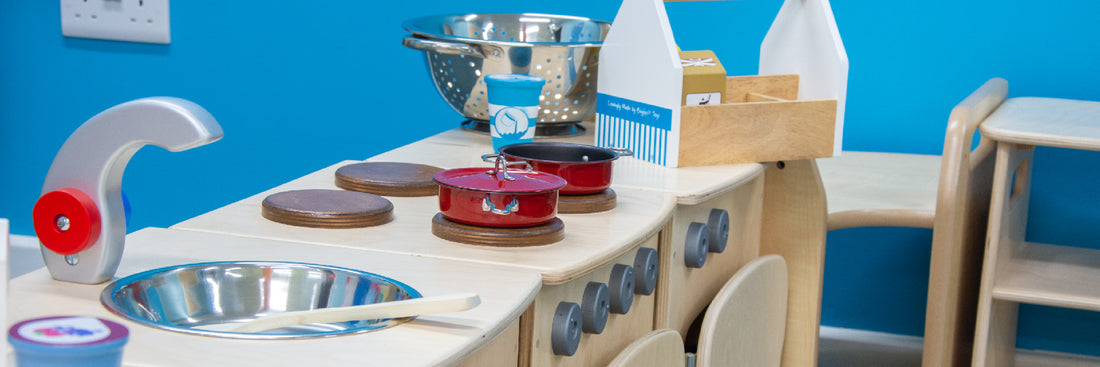
The Importance of Role Play in Early Years
Share
Role play is a crucial element of early childhood development, providing young children with the opportunity to learn and grow through imaginative play. In the United Kingdom, early years education emphasizes the importance of play-based learning, and role play is a key aspect of this approach.
At its core, role play involves children taking on different roles and acting out scenarios, whether it’s pretending to be a doctor, a teacher, or a firefighter. It allows children to explore different perspectives, develop social skills, and build their understanding of the world around them.
One of the key benefits of role play is the development of social skills. When children engage in role play, they learn how to communicate effectively with their peers, negotiate roles and responsibilities, and share resources. These skills are essential for building relationships, resolving conflicts, and functioning successfully in social situations.
Role play also promotes creativity and imagination. Children are encouraged to come up with their own scenarios and ideas, and to explore different roles and perspectives. This helps to foster a sense of curiosity and wonder, and encourages children to think outside the box and explore new possibilities.
In addition, role play helps to develop language and communication skills. Children use language to communicate their ideas and thoughts, and to negotiate with their peers. They also learn to listen and respond to others, building their understanding of the nuances of language and communication.
Finally, role play can be used to support learning in other areas of the early years curriculum. For example, children might use role play to explore different cultures and traditions, or to learn about different professions and career paths. It can also be used to support early literacy and numeracy skills, with children engaging in role play scenarios that involve reading, writing, and counting.
In summary, role play is a vital component of early childhood development. Through imaginative play, children develop social skills, creativity, language and communication skills, and a love of learning that will serve them well throughout their lives. As early years educators, it is our responsibility to encourage and facilitate this type of play-based learning, and to provide children with the tools and resources they need to explore their world through play.
